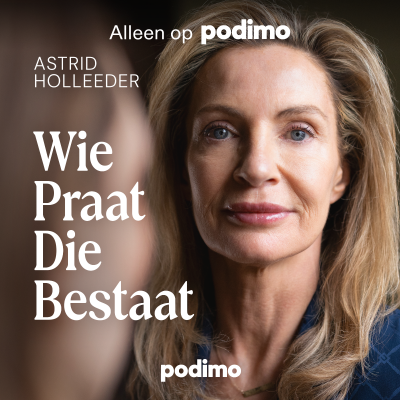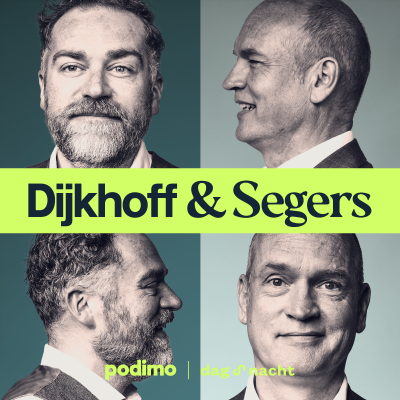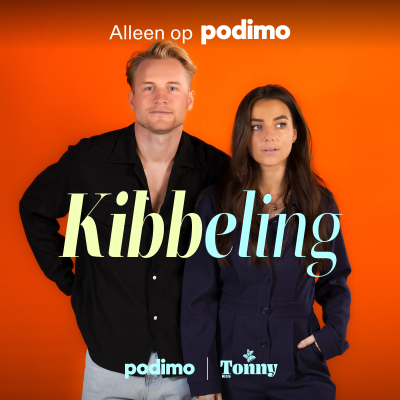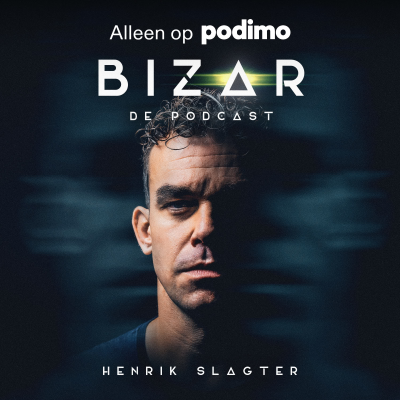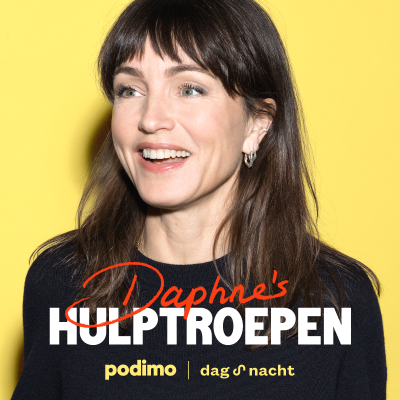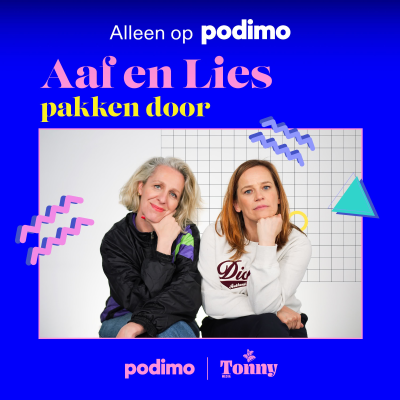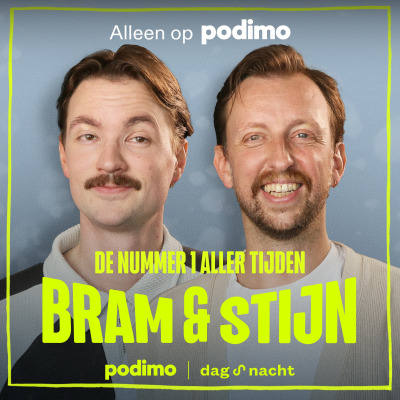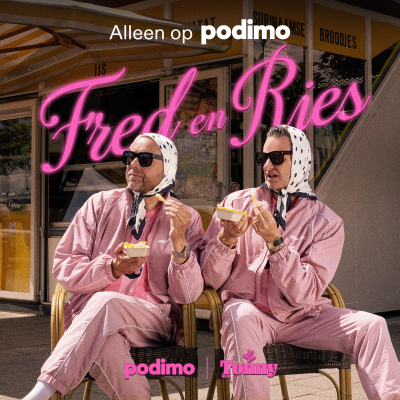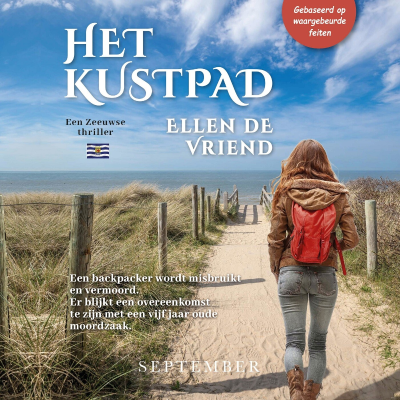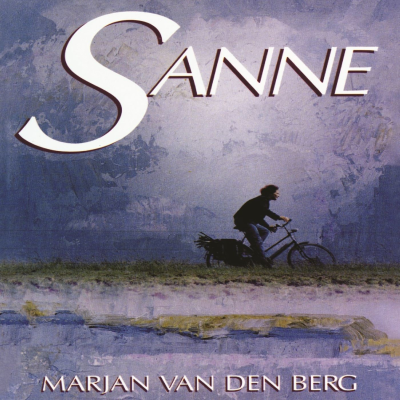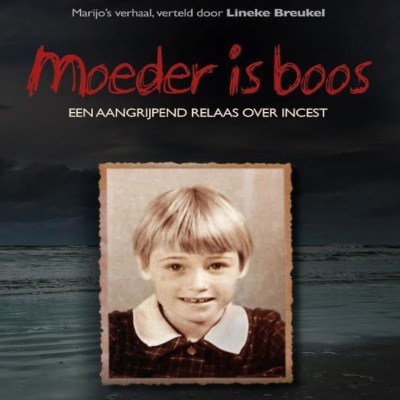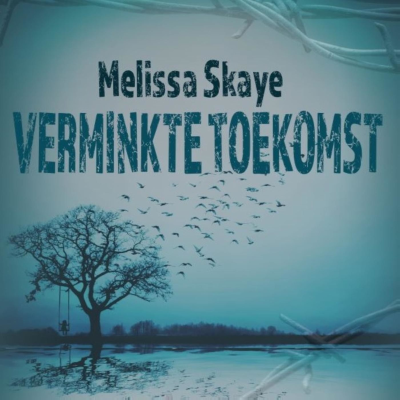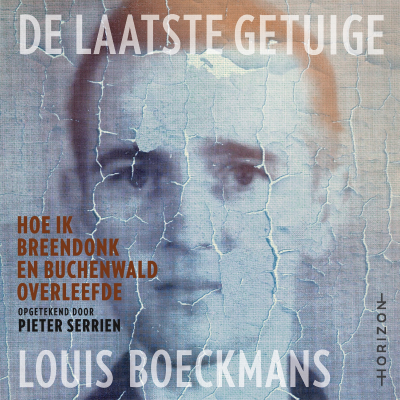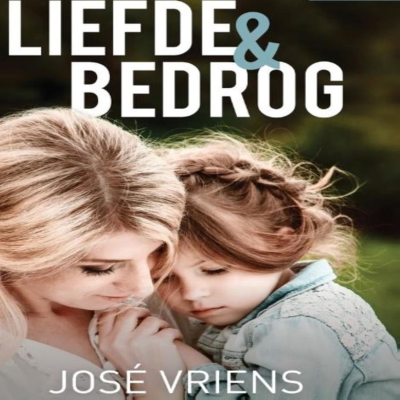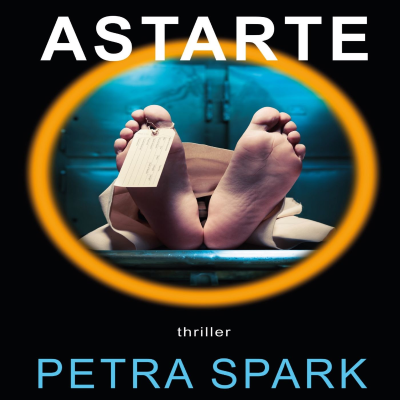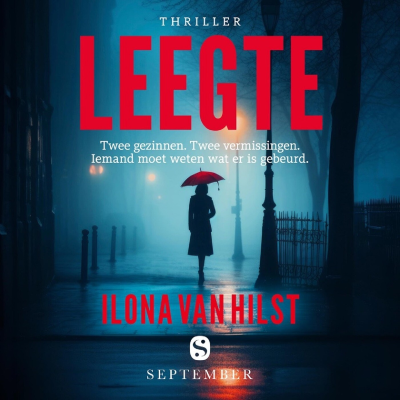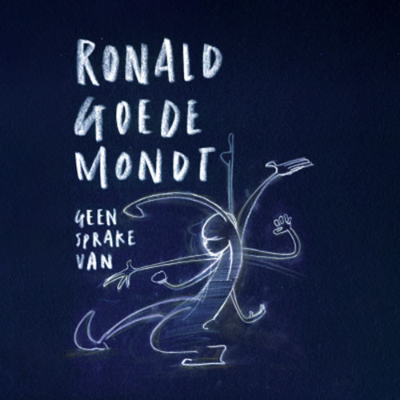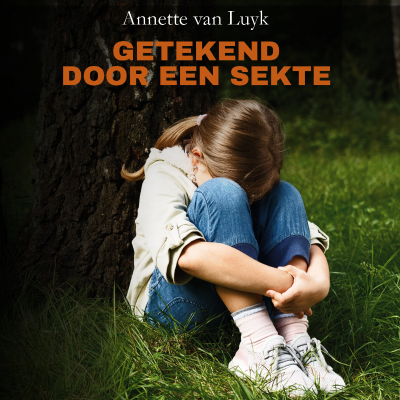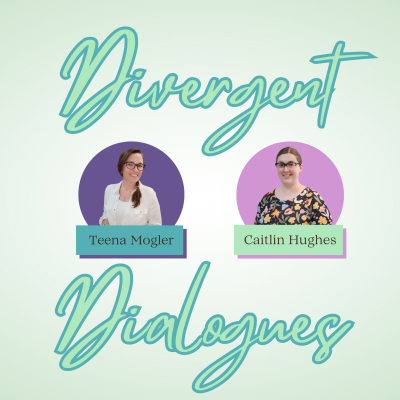
Divergent Dialogues
Engels
Gezondheid & Persoonlijke Ontwikkeling
Tijdelijke aanbieding
2 maanden voor € 1
Daarna € 9,99 / maandElk moment opzegbaar.
- 20 uur luisterboeken / maand
- Podcasts die je alleen op Podimo hoort
- Gratis podcasts
Over Divergent Dialogues
Welcome to "Divergent Dialogues," a podcast where your hosts, Caitlin and Teena—both Accredited Mental Health Social Workers and Neurodivergent-affirming therapists—draw upon their extensive professional expertise and lived experiences. Divergent Dialogues provides quality education from the heart about Neurodivergent life from a practice, research and lived experience lens.
Alle afleveringen
47 afleveringenEpisode #45 Holding Space for Yourself and Your Kids with Michael Coles
In this thoughtful and heartfelt conversation, we’re joined by autistic advocate, podcast host and dad, Michael Coles, for a discussion about the lived experience of neurodivergent parenting. Together, we explore the complexities and joys of raising neurodivergent children as neurodivergent adults, especially through the lens of fatherhood.Michael shares how his self-understanding evolved through parenting, the sensory and emotional dynamics of a neurodivergent household, and the ongoing process of self-compassion, co-regulation and community connection.We discuss:The reality of differing neurotypes within the same familyChallenges and wins with school systems and advocacyThe power of support networks and peer connectionThis episode is a gentle yet powerful reminder that neurodivergent parents are doing brave, beautiful work…often while healing themselves. Whether you’re a parent, professional, or simply seeking deeper understanding, there’s wisdom here for all of us.Michael Coles is an autistic advocate, speaker, and host of The Deep Dive Podcast. Drawing on lived experience and professional practice, Michael explores topics including autistic burnout, neurodiversity in the workplace, and inclusive systems that genuinely support neurodivergent people. His work focuses on bridging understanding between autistic and non-autistic communities, with a strong emphasis on safety, dignity, and sustainable participation.Website: http://www.deepdiveau.netLinktree: http://linktr.ee/michaelcolesInstagram & TikTok: @thedeepdiveauYouTube and Facebook: @TheDeepDiveAUThere is a substack that you can subscribe to, but email Michael for the link admin@deepdiveau.netFor more information about our podcast hosts check out the links below:Caitlin HughesCathartic Collaborations - https://www.catharticcollaborations.c...Social media: @cathartic.collaborationsTeena MoglerBalance Centre for Mental Health - https://www.balancecentreformentalhea...Social media: @balancecentreformentalhealthReady to enhance your listening experience and make the most of each episode? Become a paid subscriber and gain access to our specially tailored Episode Guides: https://divergentdialogues.substack.com/What’s inside?Clear, Concise Summaries: Easily revisit episode highlights to ensure you’ve got the essentials covered, all presented in a straightforward, digestible format.Reflective Questions: Explore thought-provoking prompts that honour diverse thinking styles. Whether you prefer quiet contemplation or lively discussion, these questions invite you to delve deeper at your own pace.Supportive Activities: Discover exercises and gentle strategies designed to foster learning, personal growth, and emotional wellbeing. Build on your unique strengths and nurture a sense of self-understanding.By joining our community of paid subscribers, you’ll unlock practical tools to help you on your journey to understanding and embracing your neurodivergence.
Episode #44 Unmasking Healing: Navigating Trauma and Neurodivergence
In this episode, we explore the powerful intersection between trauma, neurodivergence, and healing. Together, we unpack the impact of late identification, the limitations of diagnostic boxes, and the deep relief that comes from finally having language for your experience. We discuss how trauma often presents differently in neurodivergent individuals, why talk therapy isn’t always enough, and how body-based approaches like EMDR and IFS can support authentic, sustainable healing. This is a conversation for anyone who’s ever felt like they didn’t quite fit—and is ready to start where they are. Themes: late diagnosis, masking, PDA, trauma-informed care, nervous system safety, somatic therapy Vera (she/they) is a Senior Clinical Psychologist and Board-Approved Supervisor based in Sydney, Australia. They work with adults who are survivors of trauma, supporting them through the healing process with a person-centred, culturally sensitive, and neuro-affirming approach. Drawing on trauma-informed modalities such as Internal Family Systems, EMDR, and somatic practices, Vera helps clients reconnect with their inner wisdom and sense of Self. As a late-identified neurodivergent person with lived experience of high-masking, Vera values authenticity and understands the challenges of living at the intersection of multiple identities. Through both their clinical work and personal growth journey, they aim to increase the awareness of trauma healing and the importance of doing "the work" to live a fulfilling life. For more information about Vera check out: * https://loapac.org/rap/vera-yeo [https://www.google.com/url?q=https://loapac.org/rap/vera-yeo&sa=D&source=calendar&ust=1761250535778564&usg=AOvVaw2FZA7Z8Gn5dZrWJFLoyXiq] Vera's blog post explaining what trauma is: * https://www.sydneypsychhub.com.au/unravelling-_trauma/ Books Vera mentioned in the episode: * The Body Keeps The Score by Bessel Van Der Kolk * It Didn't Start With You by Mark Wolynn Vera suggested affordable trauma-informed online trainings: * https://www.nicabm.com/ For more information about our podcast hosts check out the links below: Caitlin Hughes Cathartic Collaborations - https://www.catharticcollaborations.com.au Social media: @cathartic.collaborations Teena Mogler Balance Centre for Mental Health - https://www.balancecentreformentalhealth.com.au. Social media: @balancecentreformentalhealth Ready to enhance your listening experience and make the most of each episode? Become a paid subscriber and gain access to our specially tailored Episode Guides: https://divergentdialogues.substack.com/ What’s inside? Clear, Concise Summaries: Easily revisit episode highlights to ensure you’ve got the essentials covered, all presented in a straightforward, digestible format. Reflective Questions: Explore thought-provoking prompts that honour diverse thinking styles. Whether you prefer quiet contemplation or lively discussion, these questions invite you to delve deeper at your own pace. Supportive Activities: Discover exercises and gentle strategies designed to foster learning, personal growth, and emotional wellbeing. Build on your unique strengths and nurture a sense of self-understanding. By joining our community of paid subscribers, you’ll unlock practical tools to help you on your journey to understanding and embracing your neurodivergence.
Episode #43 Unmasking the Self: Internalised Ableism, Diagnosis, and Embracing Autism with Annie Kotowicz
In this candid and deeply affirming conversation, we explore the layered experience of internalised ableism and the lifelong journey toward self-acceptance as Autistic individuals. Through personal reflections, shared insights, and the powerful inclusion of an audiobook excerpt by guest author Annie Kotowicz, we unpack how diagnosis, identity, boundaries, and belonging evolve over time. Caitlin and Teena show up with honesty, compassion, and vulnerability—offering a grounded perspective on what it means to live authentically as late-diagnosed Autistic person. Annie Kotowicz is an autistic author on a mission to: * Describe the beautiful view from her brain, * Help other autistics see the beauty of their own brains, and * Show why neurodiversity is a beautiful thing. She studied Art and English at Trinity Western University, which led to various jobs in graphic design, editing, and website development. After an autism diagnosis in 2017, she created the blog Neurobeautiful to process her ongoing discoveries about autism and neurodiversity. Since then, she has become a Chief Technology Officer, Special Education Teacher, and member of Mensa. What I Mean When I Say I’m Autistic is her first book. She has also written articles and poetry for Edutopia, NeuroClastic, and Spaces Literary Journal. Annie is happiest when writing, dancing, practicing parkour, drawing Celtic knots, or organizing her cozy and colorful home near Washington, D.C. Website: https://neurobeautiful.com/book Email: mybrainisbeautiful@gmail.com For more information about our podcast hosts check out the links below: Caitlin Hughes Cathartic Collaborations - https://www.catharticcollaborations.com.au Social media: @cathartic.collaborations Teena Mogler Balance Centre for Mental Health - https://www.balancecentreformentalhealth.com.au. Social media: @balancecentreformentalhealth Ready to enhance your listening experience and make the most of each episode? Become a paid subscriber and gain access to our specially tailored Episode Guides: https://divergentdialogues.substack.com/ What’s inside? Clear, Concise Summaries: Easily revisit episode highlights to ensure you’ve got the essentials covered, all presented in a straightforward, digestible format. Reflective Questions: Explore thought-provoking prompts that honour diverse thinking styles. Whether you prefer quiet contemplation or lively discussion, these questions invite you to delve deeper at your own pace. Supportive Activities: Discover exercises and gentle strategies designed to foster learning, personal growth, and emotional wellbeing. Build on your unique strengths and nurture a sense of self-understanding. By joining our community of paid subscribers, you’ll unlock practical tools to help you on your journey to understanding and embracing your neurodivergence.
Episode #42 Neurodiversity Affirming Practice Research with Cammy Griffin
In this episode, we dive into a conversation with Cammy Griffin, a passionate researcher and organiser of the upcoming Neurodivergent Minds Conference on the Sunshine Coast. Together, we explore the evolving field of neurodiversity-affirming practice, grounded in lived experience, evidence-based research, and a strong commitment to accessibility. Cammy shares insights from her PhD research on speech pathology practices that centre neurodivergent voices, the intersectionality within neurodivergent identities, and the importance of systemic shifts in healthcare and support systems. This episode champions humility, flexibility, and power-sharing in professional practice and highlights how professionals must be willing to adapt, learn, and listen. We’re thrilled to share that Caitlin and Teena will also be attending the Neurodivergent Minds Conference and Caitlin will be presenting! Cammy is a neurodivergent paediatric speech pathologist on the Sunshine Coast. She is undertaking a PhD on Neurodiversity-Affirming Speech Pathology Practice and has a passion for supporting individuals of all neurotypes to achieve their goals and live fulfilling lives. Find out more about Neurodivergent Minds Conference and Cammy here: www.neurodivergentmindsconference.com.au [http://www.neurodivergentmindsconference.com.au/] https://www.instagram.com/neurodivergentmindsconfau/ [https://www.instagram.com/neurodivergentmindsconfau/] https://www.instagram.com/letstalkneuropositivity/ [https://www.instagram.com/letstalkneuropositivity/] For more information about our podcast hosts check out the links below: Caitlin Hughes Cathartic Collaborations - https://www.catharticcollaborations.com.au Social media: @cathartic.collaborations Teena Mogler Balance Centre for Mental Health - https://www.balancecentreformentalhealth.com.au. Social media: @balancecentreformentalhealth Ready to enhance your listening experience and make the most of each episode? Become a paid subscriber and gain access to our specially tailored Episode Guides: https://divergentdialogues.substack.com/ What’s inside? Clear, Concise Summaries: Easily revisit episode highlights to ensure you’ve got the essentials covered, all presented in a straightforward, digestible format. Reflective Questions: Explore thought-provoking prompts that honour diverse thinking styles. Whether you prefer quiet contemplation or lively discussion, these questions invite you to delve deeper at your own pace. Supportive Activities: Discover exercises and gentle strategies designed to foster learning, personal growth, and emotional wellbeing. Build on your unique strengths and nurture a sense of self-understanding. By joining our community of paid subscribers, you’ll unlock practical tools to help you on your journey to understanding and embracing your neurodivergence.
Episode #41 Navigating Divorce & Neurodivergent Parenting Plans with Dr. Margaret Pegi Price
In this episode, we sit down with Dr. Margaret "Pegi" Price who brings lived experience and legal acumen to the topic of divorce and parenting plans involving neurodivergent children. Drawing from her own journey as a parent of an autistic child and her career in law, Pegi shares the realities families face when the legal system isn't built to accommodate neurodivergent needs. Together, we explore what it means to create supportive, future-focused parenting plans, how to advocate for fair financial contributions, and the long-term impact of unequal caregiving responsibilities. From managing transitions between households to navigating denial of diagnosis, this episode is filled with wisdom for parents, professionals, and allies alike. We also unpack: * The risks of "cookie cutter" legal forms for neurodivergent families * Why crisis planning is crucial for families with neurodivergent children * How to honour neurodivergent children’s autonomy, routines, and emotional safety post-separation * The hidden cost of invisible labour and caregiving work Whether you're currently navigating separation or supporting someone who is, this episode offers clarity, compassion, and practical strategies grounded in justice and neuroaffirming support. Dr. Margaret ‘Pegi’ Price is a Professor and Academic Program Director for the Master of Public Administration Program at National University [https://www.nu.edu]. She has held teaching and department head positions at several colleges and universities in the Midwest. She received a National Teacher of the Year award in 1992. She earned her Juris Doctorate at the University of Florida in Gainesville, Florida, where she was a Senior Editor of the Law Review and inducted into Phi Delta Phi, the legal honors society. She earned the rst perfect score in the history of the University of Florida in the Law Review annual writing competition. She completed her B.A. in History at the University of North Florida in Jacksonville, Florida, where she received multiple academic honors. With over 25 years of experience practicing law—including civil trial work and serving as a prosecutor—Dr. Price has also acted as an expert witness or consultant in more than 75 lawsuits involving special needs, making her a champion for justice and equity. Books authored by Dr. Margaret “Pegi” Price: The Special Needs Child and Divorce: A Practical Guide to Handling and Evaluating Cases [https://www.amazon.com/Special-Needs-Child-Divorce-Evaluating/dp/1639052046/ref=sr_1_1?crid=W6WOENI++CKPEC&dib=eyJ2IjoiMSJ9.hTNVuThCexnFC9dpzEBhBBh2iVOvT6cFjHkHGre9ZR6k0DzDsrY7hQpO_fRzlDxc-zdI11kF6x1iRFeI7ydNsEBy6qU_97Ae0HCZo2vV2zWyPsDVT6r8BsKKwXS9-pMMylLaaWwMu-aUhHZfAWfUVs0tonRcJ4pDgTWskh0-9fesu2rTLbmJnipi7SwcQ1YO8XYwGuRqqxRd34TUsxC77mXt6SqYyr2232-yyAAAa1s.CpPrFadRLgYck9M_Eijq7y3WbCF_RxBMazhgyINnyes&dib_tag=se&keywords=the+special+needs+child+and+divorce&qid=1755058081&sprefix=special+needs+child+and+divorce%2Caps%2C107&sr=8-1] Divorce and the Special Needs Child: A Guide for Parents [https://www.amazon.com/Divorce-Special-Needs-Child- Parents/dp/1849058253/ref=sr_1_1?crid=18CBA21P2TK49&dib=eyJ2IjoiMSJ9.vpwh4o CCqzQYhDTcKQkOcb6XcjNp4hSzCcr05mAWY- pMGgVE2lF94Hr8rvYo2TvGOiVl4OEQHRPmhImseZERrtl09liNBw- JO9Ozc3GOEZvWReLqBrv42PRelkRvV_Fk5LVuUpUbKA_qMyLKckWSjpEjoverwoDJi BPy5eFDEDGpA3BQqYDMjntc_NdTJz-Rnpuq43IhzxfLQ9E6sssVp-chmxnF- bxJUxuNhNODrgo.57foedr4N8pGHbzsN1H_vMQEYf6bLmmRCU1DP_26Cqo&dib_tag =se&keywords=divorce+and+the+special+needs+child&qid=1747066049&sprefix=divor ce+and+the+special+needs+child+%2Caps%2C85&sr=8-1] For more information about our podcast hosts check out the links below: * Caitlin Hughes * Cathartic Collaborations [https://catharticcollaborations.com.au/] * Social media: @cathartic.collaborations * Teena Mogler * Balance Centre for Mental Health [https://www.balancecentreformentalhealth.com.au/] * Social media: @balancecentreformentalhealth Subscribe now [%%checkout_url%%] Ready to enhance your listening experience and make the most of each episode? Become a paid subscriber and gain access to our specially tailored Episode Guides. What’s inside? * Clear, Concise Summaries: Easily revisit episode highlights to ensure you’ve got the essentials covered, all presented in a straightforward, digestible format. * Reflective Questions: Explore thought-provoking prompts that honour diverse thinking styles. Whether you prefer quiet contemplation or lively discussion, these questions invite you to delve deeper at your own pace. * Supportive Activities: Discover exercises and gentle strategies designed to foster learning, personal growth, and emotional wellbeing. Build on your unique strengths and nurture a sense of self-understanding. By joining our community of paid subscribers, you’ll unlock practical tools to help you on your journey to understanding and embracing your neurodivergence. Dive Deeper Into Divergent Dialogues: Exclusive Episode Guide PDFs for Neurodivergent Minds
Kies je abonnement
Tijdelijke aanbieding
Premium
20 uur aan luisterboeken
Podcasts die je alleen op Podimo hoort
Gratis podcasts
Elk moment opzegbaar
2 maanden voor € 1
Daarna € 9,99 / maand
Premium Plus
Onbeperkt luisterboeken
Podcasts die je alleen op Podimo hoort
Gratis podcasts
Elk moment opzegbaar
Probeer 30 dagen gratis
Daarna € 11,99 / maand
2 maanden voor € 1. Daarna € 9,99 / maand. Elk moment opzegbaar.

